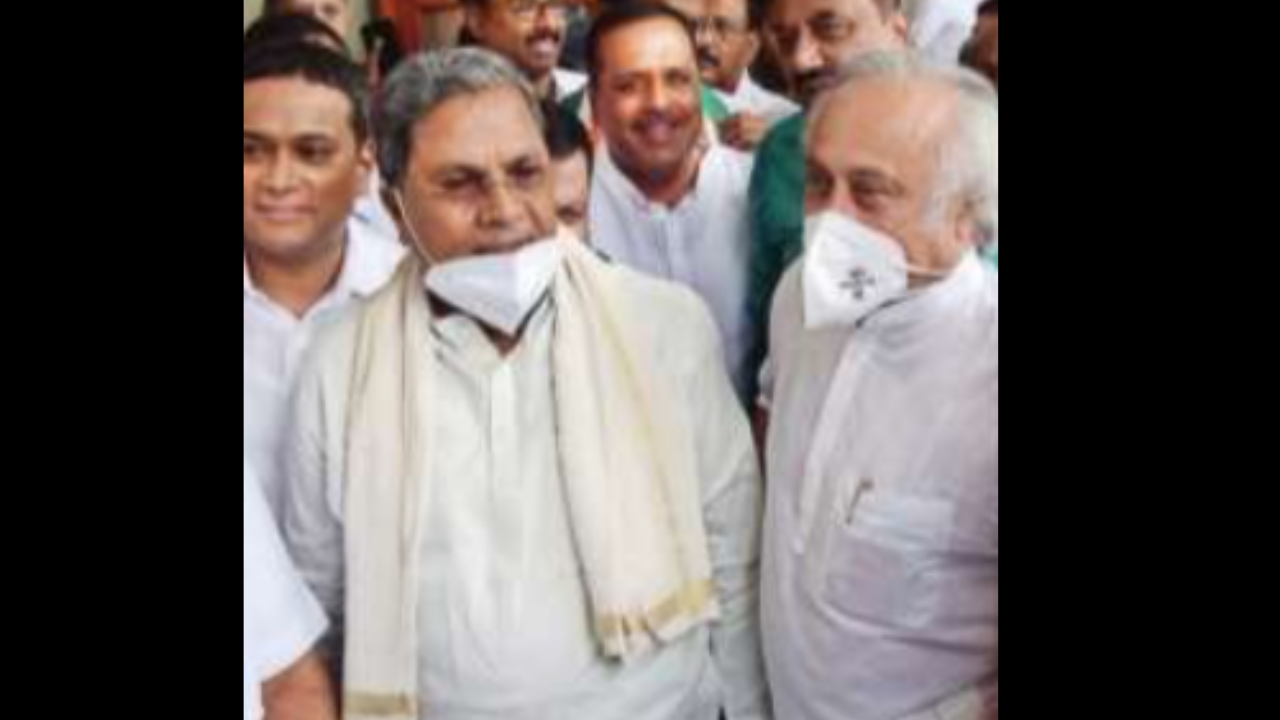
BENGALURU : While BJP has the best mathematical chance of winning the fourth Rajya Sabha seat from Karnataka, Congress and JD(S) have an outside chance. All three are banking on politics and factors like cross voting, while negotiations are also still on to get a rival candidate to withdraw.
The 224 members of the legislative assembly form the electoral college, which will vote to elect four members to the Upper House of Parliament. A candidate needs 4,481 votes to win (224x100/(4+1) +1). Each MLA carries a weightage of 100 votes.
BJP and Congress can win two and one seat respectively considering their present strength in the assembly, while JD(S) cannot win any. This has triggered a triangular fight for the fourth seat.
“Since none of the three candidates for the fourth seat will be able to get 4,481 votes, it will be necessary to count second [third and fourth preferential votes if needed] polled by candidates who have been declared elected,” said an official from the assembly secretariat.
These votes will be added to the tally of the candidate to whom they are marked. If none of the candidates reaches the quota even at this stage, elimination will kick in; and the one who polls the least number of votes will be eliminated. Second preferential votes polled by him (eliminated candidate) will be added to the tally of one of the two remaining in the fray. In case none of the two candidates reaches the quota even at this stage, the winner will be decided based on the highest votes bagged. Therefore, BJP had the advantage.
With 122 MLAs (including one BSP and one independent), BJP may allot votes of its first batch of 90 MLAs to two candidates (4,500 votes each). Its third candidate will be left with the votes of 32 MLAs (3,200 votes). However, 19 surplus votes each from the first and second candidate will be transferred to the third candidate, taking his tally to 3,238 votes, provided all votes polled for the first and second candidate are valid.
Congress, with 70 MLAs (including one independent), may allot votes of its first batch of 45 MLAs to its first candidate. So, its second candidate will be left with 2,500 votes and he will also get 19 surplus votes transferred from the first candidate, taking his tally to 2,519 votes.
The JD(S), with only 32 MLAs, will have no surplus votes and its candidate will get 3,200 votes if all its MLAs vote for him. But JD(S) is struggling with dissidence and its MLAs are expected to cross vote. If Congress manages to get eight JD(S) votes – the bare minimum – its candidate will win the fourth seat with a tally of 3,319 votes. But this is contingent on no JD(S) MLA voting for the BJP candidate. Any other scenario also puts BJP at an advantage.
“We had a similar situation in 2016 and seven JD(S) MLAs voted for our candidate. We will do it again,” said KPCC general secretary Malavalli Shivanna. But Lahar Singh Siroya, BJP’s third candidate said: “I am confident of winning because many MLAs from both Congress and JD(S) will vote for me. ” The JD(S) too has a chance of winning if it keeps its flock together and gets at least one cross vote either from Congress or BJP. “Just wait and watch we will be the winner,” said JD(S) state president CM Ibrahim.







